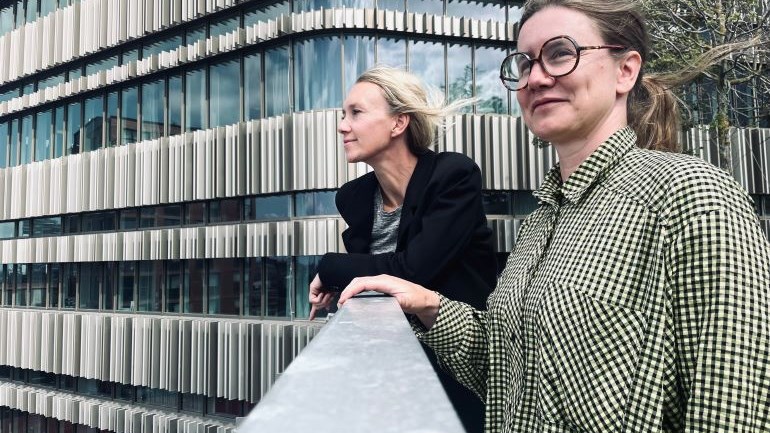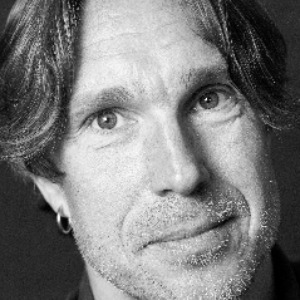Thinking outside the box to contribute to sustainable societies

Focusing on fair, sustainable and inclusive futures. Tina Askanius and Kristina Lindström are directors of the Centre for Co-Creating Futures – one of eight research centers at Malmö University.
Determining how research and education can contribute to shaping more equitable, sustainable, and inclusive societies is the overarching concept behind the new malmö Research Centre for Imagining and Co-Creating Futures.
Its primary focuses are on design, art, culture, the humanities, and social sciences. Tina Askanius, a professor in media and communication studies, is one of the centre’s two directors:
“Many of us at the University feel the need to think outside the box, rather than just working instrumentally within the prevailing system. We are therefore trying to create an interdisciplinary and collaborative context in which we ask overarching questions about the University’s role and contribution to today's society and reflect on and experiment with traditional and new forms of work and collaboration.”
The research centre is one of eight research centres at Malmö University that will receive funding for its activities from the University over the next six years. Currently, over 60 researchers at the University are affiliated with the centre.
The centre itself is new, but it builds on previous activities; one of these being the former Collaborative Future Making research group.
“Unlike many other research centres, we are not focused on a specific scientific area or field. Instead, we see ourselves as a common framework that wants to develop new ideas about the future based on different approaches,” says Kristina Lindström, associate professor of design, and the centre’s co-director.
The researchers are now organising themselves around four interconnected areas: imagining futures, creating futures, organising futures and educating for the future. The aim being to imagine hopeful futures – given the current situation, which is characterised by climate change, political polarisation and extremism, AI, and rapid digital development.
“It is important for society as a whole that universities are places where we can address these important, overarching issues in order to contribute to a sustainable, inclusive and democratic society in the future,” says Lindström.
During its initial period, the research centre has focused on building internal relationships, initiating seed funding for pilot studies and larger research applications, establishing links with external partners, and announcing two doctoral positions.
“It’s very exciting to be involved in creating something new and, at least in part, different within academia. At the same time, one challenge for the centre is to grow quantitatively while adhering to our fundamental ideas of sustainability, a slow and reflective approach that promotes thoughtfulness and quality, and providing space and time for in-depth study for the researchers involved,” says Askanius.
